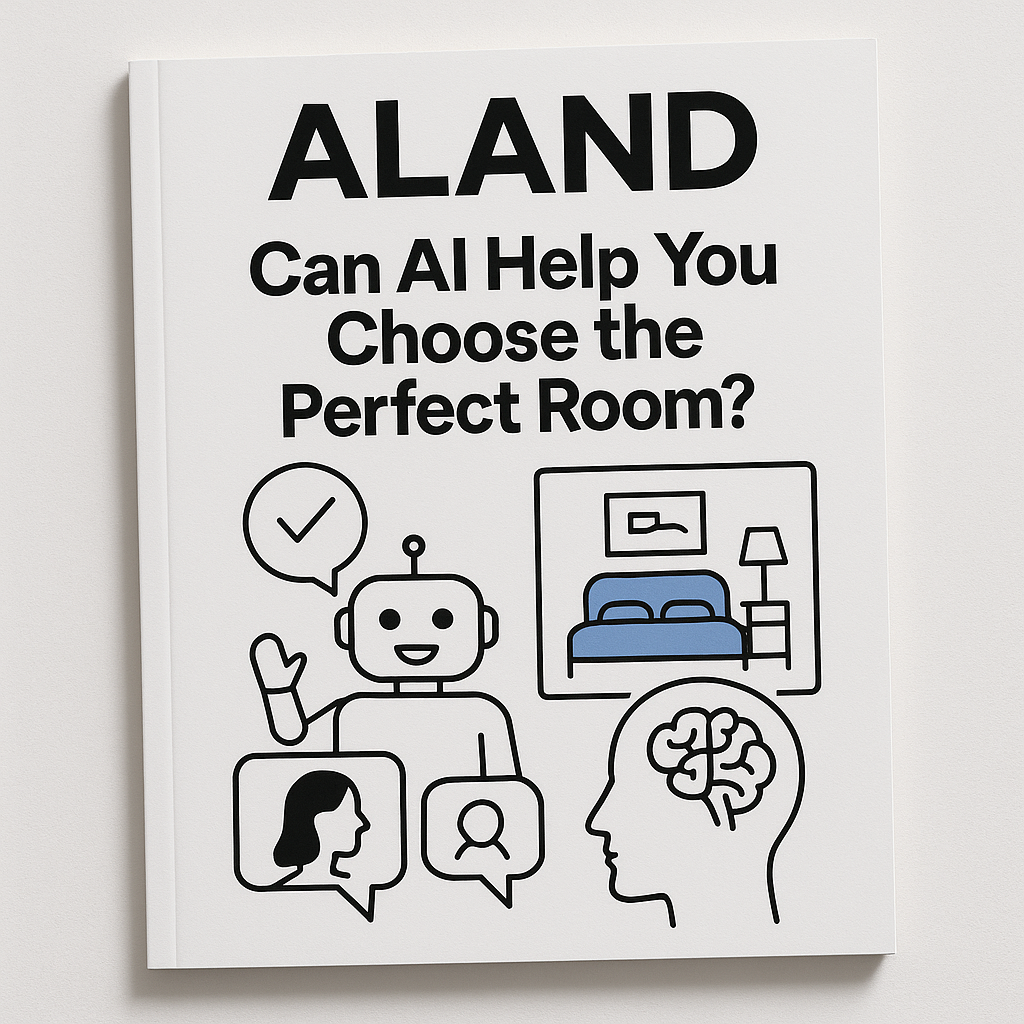Can AI Help You Choose the Perfect Room?
- Published Date: 18th Jun, 2025
-
4.8★ ★ ★ ★ ★(105)

Data-Driven Strategies to Win in Dubai’s Rental Market
By Dr. Pooyan Ghamari, Swiss Economist and Founder of the ALand Platform
In the vibrant, fast-evolving landscape of Dubai’s real estate market, the search for a perfect room can be both exhilarating and overwhelming. The glittering skyline, diverse communities, and rapidly shifting rental dynamics pose a complex challenge for renters—whether newcomers, long-term residents, or international investors.
But amid this complexity, a silent revolution is taking shape—powered by artificial intelligence (AI), data science, and next-gen analytics. What was once a hunt through classifieds and guesswork is now a science of algorithms, behavioral models, and predictive analytics. In Dubai’s hypercompetitive housing arena, the real winners are those who understand how to interpret signals, patterns, and economic behaviors hidden in data.
This article offers a deep, expert-level exploration into how AI transforms room rentals in Dubai from a reactive process to a proactive, strategic decision—opening the door to not only better housing choices but also smarter investment and financial outcomes.
Dubai: A Case Study in Housing Complexity
To appreciate the transformative role of AI, one must first understand the multi-dimensional nature of Dubai’s rental market:
-
Diverse Neighborhood Typologies: From Downtown Dubai’s ultra-luxury towers to affordable communities like International City or Deira, price points and amenities vary drastically.
-
Rental Volatility: With seasonal demand (especially during EXPO events, tourism peaks, and business migrations), rental prices can swing rapidly in localized pockets.
-
Immigrant-Dominated Population: With over 85% expatriates, rental demand is shaped by employment trends, visa policies, and currency fluctuations.
-
Decentralized Data Sources: Listings are scattered across portals, brokers, and social media, making transparency and comparability a serious challenge.
These layers, though daunting, present an extraordinary opportunity for AI tools that unify fragmented data, extract insights, and deliver competitive advantages to renters.
The AI Advantage: Transforming Search into Strategy
Artificial Intelligence doesn’t merely simplify the search—it redefines the rules of decision-making. Here’s how:
1. Personalized Matching Algorithms
AI engines leverage behavioral data—such as click patterns, budget adjustments, search frequency, and saved preferences—to predict user choices with precision. Similar to Netflix recommending films, AI-powered rental platforms suggest properties tailored not just to features but to lifestyle, behavior, and values, enhancing user experience and decision-making.
2. Price Prediction Engines
Trained on historical pricing trends, satellite imagery, traffic flow, and economic indicators, AI can forecast future rent prices with stunning accuracy. This enables renters to:
-
Avoid overpaying during price spikes
-
Time their leases strategically
-
Negotiate more confidently
3. Location Intelligence
AI pulls from geospatial data—metro proximity, crime rates, noise pollution, walkability scores—and generates “Livability Scores.” This gives tenants an X-ray of the true life quality behind glossy marketing.
4. Tenant Sentiment Analysis
Using NLP (Natural Language Processing), AI scans hundreds of tenant reviews and summarizes core issues or highlights into digestible insights—flagging red zones (maintenance issues, bad landlords) and green zones (good community, responsive management).
5. Virtual Reality Meets AI
3D room tours now integrate with AI to learn from your behavior: if you pause longer on rooms with large windows, the algorithm adapts to prioritize listings with natural light. The virtual walk-through becomes a live-feedback system.
From Searchers to Strategists: Empowering the Renter
These AI tools allow renters to transform from overwhelmed searchers into intelligent market actors:
-
A user can calculate rental ROI between co-living and solo studios
-
AI can model commute versus rent trade-offs using real-time transport data
-
Predictive analytics can flag overvalued neighborhoods ahead of time
-
Smart contracts and blockchain integrations can offer AI-audited risk scores of landlords and lease terms
This is not just about beds and square meters. It’s about optimizing life choices using economic data, lifestyle psychology, and machine learning.
ALand’s Vision: Real Estate Meets Intelligence
At ALand, we see real estate as more than property. We see it as infrastructure for human possibility, and AI as the bridge to realizing its potential.
As the Founder of ALand, I have invested in combining macro-level economics with micro-level user behaviors, building AI frameworks that allow renters to ask:
-
Where should I live?
-
When should I rent?
-
What’s the risk of this landlord?
-
How will this neighborhood evolve in 12 months?
Dubai—with its open economy, fast-expanding infrastructure, and AI-forward governance—is the perfect testing ground for this vision.
🧠 Final Reflection
The question is no longer can AI help you find a room. It’s how much you’re losing by not using it.
Dubai’s market rewards speed, data, and clarity. Whether you’re a tenant trying to maximize your quality of life, a landlord hoping to remain relevant, or an investor seeking undervalued gems—those with access to AI tools are playing an entirely different game.
The future of real estate is predictive, personalized, and intelligent. And the perfect room? It’s no longer found. It’s calculated.
📘 About the Author
Dr. Pooyan Ghamari
Swiss Economist | Founder of the ALand Platform
Dr. Pooyan Ghamari is a Swiss Economist, Global Thought Leader, and the Founder of the ALand Platform—an ecosystem designed to revolutionize real estate through digital transformation, data science, and financial innovation. With a PhD in macroeconomic systems and decades of experience in global financial analysis, he bridges real estate, technology, and investment into actionable economic intelligence.
His insights have guided policymakers, sovereign investors, and real estate developers around the world. He is an advocate for integrating AI, decentralization, and sustainable models into global housing strategies. As a visionary behind ALand, Dr. Ghamari continues to shape the future of housing as a system rooted not just in shelter—but in strategy, analytics, and empowerment.

